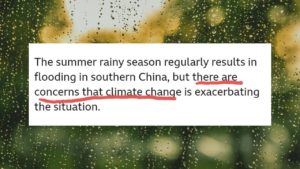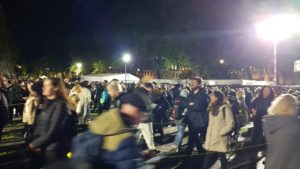
This weekend I went to a 40-year reunion at the university I attended when I was 18. It was the first time I attended these reunions and was surprised at how many people I recognised and how many recognised me, especially as we had not seen each other in these years since. The weekend left me reflecting that knowledge of the past may help anchor us, but it takes faith in the future to give us joy.

Our journey started from Liverpool Street Station in London. Despite being married for 30 odd years, my wife has never visited the college with me. She has never seen the inside of it and knows only one person who knows me from there.
We arrived in Cambridge and walked into the city. As we approached the colleges I told her that time is different here.

In Cambridge, we see all the events of the world passing. Nothing is missed. But time has a different dimension here, and the events do not touch it in the same way. It is a place where discussions on how to push forward the cutting edges of technology are debated in the same breath and at the same table as the lessons of diversity in Central Asia in the 13th century when Europe was still in the Dark Ages. Somehow in doing so, time collapses into an eternal dimension of timelessness.
We used to joke as undergraduates that if a nuclear bomb were to explode somewhere in the world, here, we would be oblivious of it. That is what timelessness felt like. We misunderstood it then as being closed away in ivory towers. Over the years I have come to appreciate that what we felt then was that with sufficient perspective, all things are humbled and diminished. That is how timelessness comes about.
The college itself is humbled by it. King’s was founded in 1441 by Henry VI and has a tradition of breaking traditions. Founded to provide space for 12 poor scholars (from Eton which was founded a year earlier to provide education for poor boys), it brought in women in 1970 and is most recently reaching back into the past with flower meadows, cows, and allotments for students.

The weekend was too short for all of the many versions of the forty intervening years to be shared, but we made a good go at it. Over dinner, we got to talk more about the world and where we are today. Conversations regrouped into the bar. That was the one significant change — what was for us in 1982 an imagined relic of the radical 1960s, with dingy red alcoves where you could feel the revolutionary spirit of the past, had turned into a five-star hotel bar in Marbella. You cannot conceive future generations talking enviously about revolutions that started in that bar today.
In that timeless dimension of King’s College, Cambridge, it felt strange to say that I now help people survive climate change. Climate change will doubtless come and go. This was a place where I first heard about the ozone layer, in a mathematics library chatting with an ardent young researcher who taught me about CFCs. This was a place which had seen wars, famines, and plagues happen, where young scholars had slayed established thinking replacing them with new paradigms instead. However, of all the things that have happened, climate change is creating a crack in eternity. The pristine lawn this summer had dried. The college had to decide in the face of the drought whether to keep it green or give way to a changing world. In a place where apparently nothing except for the bar changes, I sensed there was worry and concern.
We are running out of time even in this timeless dimension. Change is inevitable because the planet that even King’s sits on is being forced to change.
I learnt during the dinner that the Mongols believed diversity was essential for survival. I heard about how it was recognised as important that sunshine falls equally on everyone. We believe in the opposite today; we believe in trickle-down and letting the sun shine on the most favoured. I talked about how Aquinas considered good in terms of the harm it inevitably brings, and how Augustine even further back established that good is not achieved by doing good at all, but by not doing too much. We stayed in Bene’t Street, named after St Benedict who, for a monk, radically said even praying must be done in moderation.
In this timeless dimension where the centuries come together, I recognise its influence in developing my own thinking, freeing it from the shackles with which we bind climate change today. We have turned climate change into about ephemeral investments and creating job counts, and forget it is always about what we are living for.
But the debates and discussions have to exit this special dimension to return to our own time where it runs on like the White Rabbit leaving us always late. Outside the college, as we left, we met a group of passionate protesters supporting their compatriates to speak up in the name of Marsha Armini. In my time, we called on Nelson Mandela. It has been important that in each age, we have been able to call out, in the same way, a different name.
However, with climate change, we need actions that are beyond these protests; we need to slay the established thinking and bring about a new kind of activism.
In our world today, the planet’s resources are too scarce to waste in activisms that simply disrupt. We need an activism that compels us we are better off accepting the planet’s limits rather than seeking to live beyond them.
As we left that timeless dimension I recognised its influence in shaping our ideas for Transformational Ownership, Innovating Inside-the-Box, and Lazy Sunday Afternoons, and even in the way we want to bring them about. They have their basis in the wisdom of the centuries past which shows us how to discover true freedom and purpose and how faith in the future is what gives us joy.
They remind us that good is not about doing good, but is the result of living, innovating, and thriving within those limits.



